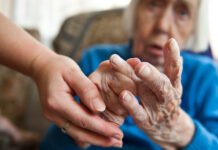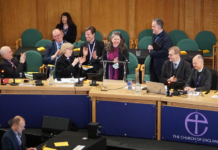When the coronavirus pandemic began and lockdown took force across the country – shuttering shops and pubs, closing schools and barring places of worship – much of what we saw, heard and experienced was dictated and driven by “the centre”. Ministers and officials commanded our attention and determined the daily details of our lives. Few of us have experienced the sheer power of government like that in our lifetimes.
It makes sense to instinctively look for central direction in such an acute crisis, and we’re indebted to the roles many played in doing so, especially those who organised the NHS to cope with the increased demand. Within the Church there are lessons to be learnt about the role and importance of central guidance, and its crucial interplay with government rules that exist for the benefit of all.
But with a vaccine still far from certain, infection rates rising and winter on the horizon, the new normal of living with Covid-19 will only be sustainable – or even endurable – if we challenge our addiction to centralisation and go back to an age-old principle: only do centrally what must be done centrally.
As a country, this principle is in our DNA. In the Church of England, we have been committed to localism for centuries. Every inch of the country is part of an Anglican parish, and parish churches are woven into the fabric of their communities. Meanwhile, local councils are full of people who care about street lighting that does not work, speed limits that need to be in place, and paving stones that could trip people up. It might not seem exciting, but it is essential.
When it comes to Covid-19, the importance of local networks and communities becomes even greater. Scotland and Wales have shown that local public health is the best qualified to deal with local outbreaks. Local government, schools and voluntary agencies – including churches – can communicate well, act swiftly and measure risk and consequences on the ground. Giving them generous funding would be a good investment.
What began as a national – and international – crisis has been the top priority of Westminster, Whitehall, Holyrood and Cardiff, and will remain so for some time to come. But in many ways the “on-the-ground” response has been the most vital. Local communities, councils, and, yes, local churches have played the most important delivery roles of all.
While the guidance and direction may come from central authorities, those local structures that have been implementing, organising and responding in their own immediate communities are in many ways the heartbeat of the response to the pandemic. We think of those churches offering summer holiday experiences for families, or Hackney Church in east London, which has supplied over 50,000 meals since lockdown began.
As lockdown has eased, it has given us the chance to appreciate afresh what our communities have to offer. Many of us have celebrated the freedom to go to a favourite local restaurant or get a haircut. For people of faith, the opportunity to gather again in worship and prayer has been a great blessing. Locality matters: it means a home; community; stability.
Of course, as senior church leaders we need to remove the plank from our own eyes. During the pandemic it has been vital for the Church of England to have a national Covid Recovery Group to keep our churches, clergy and congregations as informed and safe as possible. And we are not immune to the temptation to pull more decisions into the centre, to feel that “something is being done”. But it is a temptation that should be resisted. Often that “something” might not be as effective as what could be done locally.
During lockdown, I (Justin Welby) spent time as a volunteer chaplain in St Thomas’ hospital in London. To do this, I needed permission from the local bishop, the Bishop of Southwark. On the wards, the senior chaplain would introduce me: “This is the Archbishop of Canterbury. I am his line manager.” And she was.
We have our own hierarchies in the Church of England, but ultimately it is our churches and our clergy on the ground that are its lifeblood. In the last six months, it has been they to whom we owe our deep gratitude.
So here’s our challenge for the next phase of this complex, painful and hugely challenging time: let’s place our trust in the local, and make sure it is resourced, trained, informed and empowered. Some places will get things wrong – but that is true of central leadership too.
It’s a challenge for government, and it’s one we also accept in the Church of England. Where some have felt we have made too many decisions from the centre, we recommit to empowering clergy and parishes, which are and have always been the foundation of the Church.
We have been united across the country – and the world – in the face of adversity. But the strength of response has come from much closer to home.
16 Sept 2020
The Most Rev Justin Welby & The Rt Rev Sarah Mullaly



